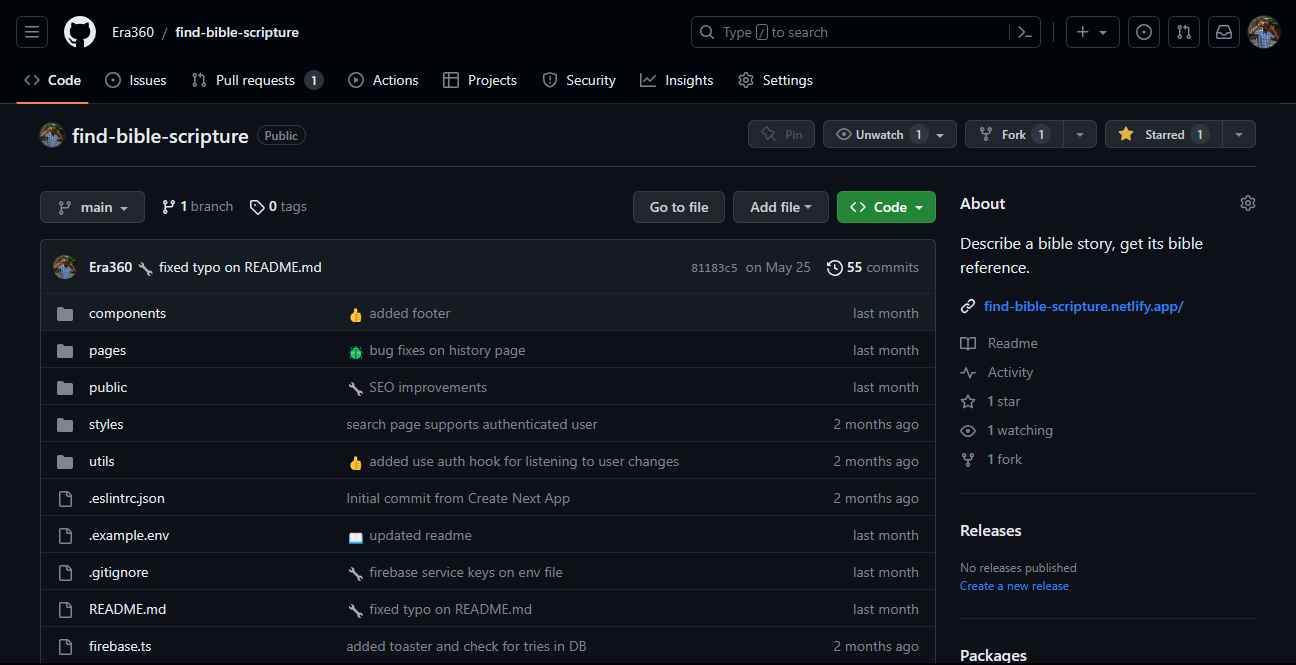BibleGPT: Unveiling the Magic Behind Instant Bible Verses
Unleashing BibleGPT: Tap into the Wisdom of Scriptures Instantly - Learn how BibleGPT harnesses the power of AI to provide accurate Bible references. Dive into the creation journey, user-friendly interface, and the magic of seamless technology and divine revelation.

In a world filled with technology and digital advancements, finding answers to our queries has become easier than ever. However, when it comes to remembering a specific Bible story or locating a particular verse, the task can be quite daunting. But fear not, for BibleGPT is here to revolutionize the way we interact with the Scriptures. Combining the power of artificial intelligence and the timeless wisdom of the Bible, BibleGPT is your ultimate tool for finding that elusive biblical reference you just can't seem to recall. In this article, we'll dive into the creation of BibleGPT, exploring how it combines cutting-edge technology and user-friendly design to enhance our exploration of the scriptures.
Why did the computer go to church?
- 😂 Because it had a lot of data that needed to be saved!
The seed for this groundbreaking web app was planted when I found myself struggling to remember the precise chapter and verse of my beloved Bible story. It was at this moment when I realize that there must be a more efficient and user-friendly way to access the vast treasure of knowledge found within the Bible.
Exploring Alternatives
- Manual Search
One of the traditional methods for finding specific biblical references is through manual search. This involves using a physical Bible or an online Bible platform and manually flipping through the pages or scrolling through the text to locate the story you are looking for. While this method allows for a deep engagement with the text, it can be time-consuming, especially when users only remember fragments of the story or have a limited understanding of the Bible's structure and organization.
2. Concordances
A concordance is an alphabetical list of the principal words used in a book or body of work, listing every instance of each word with its immediate context.
Users can search for specific words or phrases to find the associated biblical references. Concordances can be helpful in locating verses related to specific keywords, but they require users to have a good understanding of the specific words or phrases they are searching for. They may not be effective when users remember a story based on its content or themes rather than specific words.
3. Mobile apps
With the advent of mobile apps, accessing biblical references have become more accessible. Various apps and digital versions of the Bible offer search functionalities, bookmarking features, and even highlighting options to help users find specific verses. However, these options still rely on users formulating accurate search queries or having some familiarity with the Bible's organization.
Introducing GPT models
GPT models, short for "Generative Pre-trained Transformers," are a type of large language model (LLM) and a prominent framework for generative artificial intelligence.
These models are trained on vast amounts of textual data, enabling them to generate coherent and contextually relevant responses to user queries. BibleGPT harnesses this power to assist users in retrieving specific biblical references by leveraging the training data from the Bible.
Why Choose the GPT model alternative?
a. Speed and Efficiency:
GPT models can swiftly analyze user input and provide accurate biblical references within seconds. This rapid response time significantly improves the user experience and saves valuable time of manually looking into a lot of pages.
b. Contextual Understanding:
GPT models excel at comprehending the context of a given text, allowing them to decode ambiguous queries and provide accurate results. This contextual understanding enhances the accuracy of BibleGPT, even when users have partial or imprecise descriptions of biblical stories.
c. Adaptability:
GPT models possess the ability to adapt to a wide range of queries and user inputs. Whether users remember snippets of dialogue, story summaries, or even specific keywords, GPT models can comprehend and retrieve the relevant biblical references with precision.
Why did the Bible take up coding?
- Because it wanted to be scripture-urally proficient!
Building the web app
To transform BibleGPT into a user-friendly web app, I employed Next.js, a robust framework that facilitates server-side rendering and simplifies the development process. Next.js enables the seamless integration of frontend and backend components, allowing for dynamic and responsive user experiences.
Also, I used Firebase a robust platform for web and mobile app development to handle all backend processes. I implemented a reliable database(Firestore) and user authentication system to enhance the functionality and security of BibleGPT.
Coding
The Project is Open-source in Github. You can easily fork the repository and customize it the way you want.

After forking, clone your repository into your machine (make sure you already have Git installed)
git clone https://github.com/Era360/find-bible-scriptureSince we used Firebase for the backend, we must create a Firebase project on the Firebase console, then Register your web app.
When done with creating a Firebase project and registering the web app, Create a .env file in the root directory of the project. And store your Firebase Project Configurations in it, as:
NEXT_PUBLIC_FIREBASE_API_KEY=
NEXT_PUBLIC_FIREBASE_AUTH_DOMAIN=
NEXT_PUBLIC_FIREBASE_PROJECT_ID=
NEXT_PUBLIC_FIREBASE_STORAGE_BUCKET=
NEXT_PUBLIC_FIREBASE_MESSAGING_SENDER_ID=
NEXT_PUBLIC_FIREBASE_APP_ID=
NEXT_PUBLIC_FIREBASE_MEASUREMENT_ID=
Nextjs allows us to write some backend code, we can utilize this feature to create an endpoint to help us with backend code like getting a response from the GPT model. Because we also need to work with the database on the backend, we need to get Firebase access as admin. so go to the settings of your Firebase project then click the Service accounts tab and generate the private key. Copy them and add them on:
FIREBASE_SERVICE_ACCOUNT_KEY=private keysOne more thing, We can't just use the GPT model. We need access keys(API keys) from OPENAI. Head here, copy your API keys then paste them on your .env file:
OPENAI_API_KEY=your api keysAfter all that, run:
npm i && npm run devUsing BibleGPT
If you don't want all the hustle of creating it yourself, you can simply click here and create an account. Engaging with BibleGPT is as simple as typing a small story or details from a Bible narrative that you remember. BibleGPT swiftly processes your input and generates the corresponding Bible reference, providing you with the precise chapter and verse that matches your query. It's a powerful tool that saves you time and effort, helping you access the wisdom of the scriptures in an instant.
Conclusion
In the age of technology, BibleGPT stands as a testament to the harmonious blend of ancient wisdom and modern innovation. It serves as a powerful tool for those seeking quick access to the Scriptures, enabling individuals to navigate the vast expanse of biblical knowledge effortlessly. So, whether you're a devoted believer, a student of theology, or simply someone curious about the Bible, BibleGPT welcomes you with open digital arms.
So, the next time you find yourself searching for a Bible verse or chapter, let BibleGPT be your guide. Explore, engage, and unlock the treasures of the Bible with this remarkable web app that connects the wisdom of the ages with the convenience of modern technology.
Why did the BibleGPT bring a flashlight to the digital world?
- Because it wanted to shed some "light" on those hard-to-find verses!
